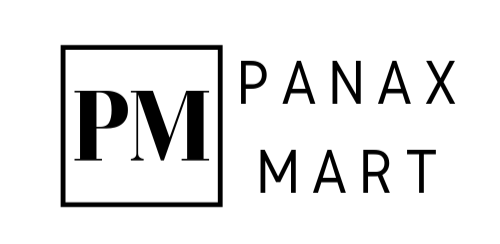FAQs
What are the different Matsuno Glass beads shapes & their abbreviation?
| RR=Round Hole Rocailles | SR=Square Hole Rocailles |
| 2CUT=Two Cut | 2CUTB=Two Cut Bugles |
| RB=Round Hole Bugles | RR=Round Hole Rocailles |
| TW=Twist |
SP=Spiral |
What are the different beads sizes?
| Size | RR | SR | 2CUT |
| 15/0 | 1.5mm | - | 1.5mm |
| 12/0 | 1.9mm | - | - |
| 11/0 | 2.0mm | 2.0mm | 2.1mm |
| 10/0 | 2.3mm | 2.3mm | 2.3mm |
| 9/0 | 2.6mm | 2.6mm | 2.6mm |
| 8/0 | 3.0mm | 3.0mm | 3.0mm |
| 6/0 | 3.6mm | 3.6mm | 3.6mm |
| 2CUTB | RB | SB | SP |
| 3.0mm(Φ2.1mm) | 3.0mm(Φ2.0mm) | 3.0mm(Φ2.1mm) | |
| 4.5mm(Φ2.1mm) | 4.5mm(Φ2.0mm) | 4.5mm(Φ2.1mm) | |
| 6.0mm(Φ2.1mm) | 6.0mm(Φ2.0mm) | 6.0mm(Φ2.1mm) | 6.0mm |
| 9.0mm(Φ2.3mm) | 9.0mm(Φ2.3mm) | 9.0mm(Φ2.3mm) | 9.0mm |
| 12.0mm(Φ2.3mm) | 12.0mm(Φ2.3mm) | 12.0mm(Φ2.3mm) | 12.0mm |
| - | 15/0:3.0mm(Φ1.5mm) | - | - |
Why the color of the glass beads seen with your monitor slightly different than what you have received?
Here is the short list of factors that cause the colors to look different on your monitor:
- Viewing environment
- Monitor settings
- Nonlinear human vision
- Gamma correction
- Color coding
Different Types of Needles and their purposes
1. Sharps
These are all purpose needles used for everyday purposes. They have a Round eye with a medium length.
You will be using these needles in your dressmaking, to make bullion knots or french knots in counted work, smocking. Applique is another use.
2. Embroidery or Crewel Needles
They have long narrow eyes with a very sharp point. They are of medium length. This is usually what we use as normal embroidery needles. They come in sizes 1- 10 .
Needle with the number 6- 8 are the most commonly used needles. For lightweight fabric with two strands of thread number 7 needle is used
3. Tapestry Needles
These needles have a blunt point and a large eye (Oval eye) – elongated eye for easy threading, and blunt point glides smoothly through the holes in your fabric, without splitting the threads.Sizes range from 13-28.
It is especially used for needlepoint, counted cross-stitch and counted thread embroidery. This is the best needle to use for counted cross stitch on aida fabric.
Tapestry needles have different sizes. Smaller the number the larger the needle size. A number 24 needle is generally used for this embroidery. A simple guideline is to use a Size 24 tapestry needle for 11 -14 count fabrics; Size 24 or 26 tapestry needle for 18 count fabrics; Size 26 or 28 tapestry needle for 22 count and higher count fabrics. If bigger needles are used for finer fabrics the holes will be big and make your embroidery look bad.
4. Beading Needles
These are the needles used to string beads in bead embroidery. The small beads need a needle with a very small eye, so normal needles are usually out of question. Usually beading needles are very thin and long with tiny eye otherwise small beads would not pass through. You need long needles to string many beads.
5. Chenille Needles
This needle have large eyes and very sharp points. The eyes are large enough to accommodate ribbon and other thick yarn. Sizes 13-24 are generally used
Size 20 -22 needles are used for 4-9 mm silk ribbons. You have to ensure that the ribbon is not being crushed when passing through the eye of the needle.
6. Darning Needles
These needles have very large eye and are suitable for threading bulky yarn and wide ribbons. The tip of the needle is slightly curved, making it easier to pick up stitches.These long sturdy needles have very sharp points .
These needles are suited for darning and doll making.
7. Quilting Needles
These needles have long shanks and can easily penetrate through your quilt layers.They are quite short with small, round eyes. They make even small stitches needed for quilting and hemming.
8. Felting Needles
These are L shaped sharp needles meant for repeatedly jabbing on felt wool
9. Canvas Needles
These thick blunt needles are suited for use on plastic canvas. You can use these needles to join knitted fabric pieces as well
10. Bodkins
These are long thick and blunt needle (some times with sharp point)with a large eye. They are used for threading elastic, ribbons, and cords through casings
11. Curved Needles
These needles are also called upholstery needles. This curved needles are used to repair and mend usually upholstery weight fabric and gives almost invisible blind stitches. It is also helpful in reaching for seam which is impossible to reach with normal needles
12. Leather Needles
These are needles (Glovers) with a sharp tip shaped like a triangle for cutting into thick leather.
13. Milliners Needles
These are long sharp needles traditionally used in millinery trade. Nowadays they are used for making decorative stitches
14. Between Needles
These are needles used for hand quilting, and fine needlework such as shadow work embroidery. They have sharp points, Round eye and a short length
15. Self Threading Needles
These are needles with a special groove in the eye, so that you can easily thread the needle
16. Tambour Needles
These needles are used for Luneville embroidery. Luneville embroidery is a term used for making different types of tambour embroidery.
** Credits for this Needle Guide: Sewing Guide
